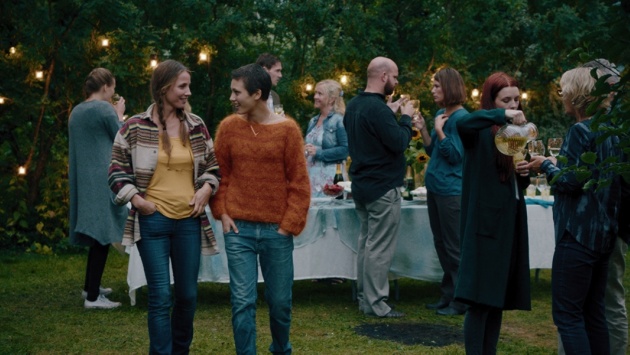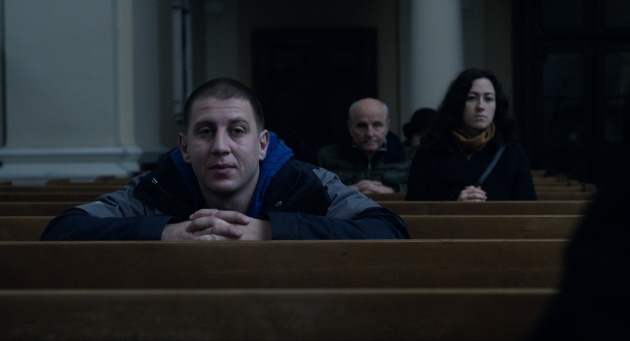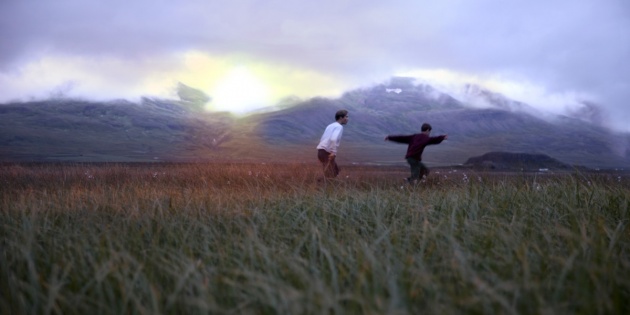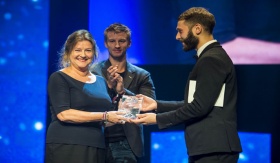Views of the Province

Rosemari (© NFL 2016)
As always, the 58th Nordic Film Days in Lübeck were well organized and a concern for many local and foreign guests. Obviously there was an all-time audience record this year with 32 000 visitors altogether. The INTERFILM Jury had 17 films in the competition to consider, the same films as the international NDR Jury. A very intense programme with many interesting films.
A theme of this years competition could be captured in the word ”province”. A large number of the films were shot in the countryside, or in small towns - a renaissance for the province, at least on the screen. Films like Swedish ”Small Town Curtains”, Norwegian ”Pyromaniac” and ”The Revenge”, Finnish ”The Devil’s Bride”, and Icelandic ”Heartstone”, all take place far away from the big cities and except for the Danish Film ”In the Blood” which takes place in Copenhagen there were no city-stories among the competition films.
The choice of our jury was a bit suprising, even for ourselves. The Norwegian drama comedy ”Rosemari”, directed by Sara Johnsen, was an all our lists for films discussable for our award, but - at least from the start – noone’s top choice. Still, our decision was not a compromise. Instead, talking the film through and studying the jury criteria closely, we realized after a while that ”Rosemari” was the perfect INTERFILM choice. the story about 16-year old Rosemari searching for her biological mother, with the help of the disenchanted TV-journalist Unn Tove is witty, complex and touching. The film is funny and still deep, light and still sad, full of unexpected turns. A perfect film for discussions about longing, identity, motherhood, lies, the porn industry and love. A film that might look like a light-weighter at first but in a very intelligent manner succeeds to touch almost all essential issues one could think of…”Rosemari” did not just get the INTERFILM prize but was also the second most popular film among the audience.
Other films that our jury discussed were Lithuanian ”The Saint”, Icelandic ”The Oath” and ”Heartstone” (the latter won the NDR prize) and Swedish ”Drifters”.

”The Saint” is a slowly paced story about an unemployed father, Vytas, who hears a rumour about a guy who claims that he has seen Jesus. Instead of caring for his wife and daughter and trying to get a new job, he goes looking for this guy. A desperate attempt to fill the void that unemployment caused for him. This is also a story about the crisis of a whole country, the economical breakdown in Lithuania in 2008, and the two subjects are intelligently intertwined.
”Heartstone”, winner of the NDR Jury prize is a touching coming of age and coming out as gay-story, set in a magnificent Icelandic scenery. It is director Gudmundur Arnar Gudmundsons first feature film, and it´s an impressive one. He takes his time to describe the friendship between Thor and Kristján and their way of dealing with love and small village mentality, and although we have seen similar stories before, we do not have one boring minute during the film.

Famous Icelandic director Baltasar Kormákur also plays the lead in his tragic story about a doctor who takes drastic measures to protect his daughter from her boyfriend who drags her into a life of parties and drugs. ”The Oath” is very well played and exciting from the first second to the last, but maybe a bit too dystopic for a church jury.
Swedish ”Drifters” by first time director Peter Grönlund tells the story of Minna, a women with big drugrelated problems. After loosing her apartment she ends up in a caravan park in the outskirts of Stockholm. ”Drifters” is a very realistic portrait of marginalized people, and incredible well performed.

